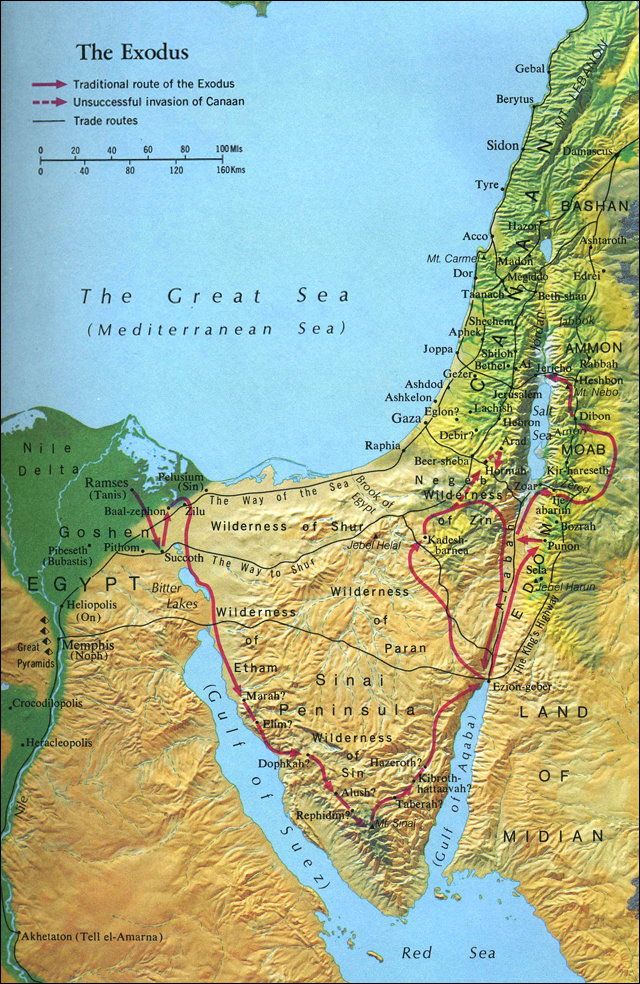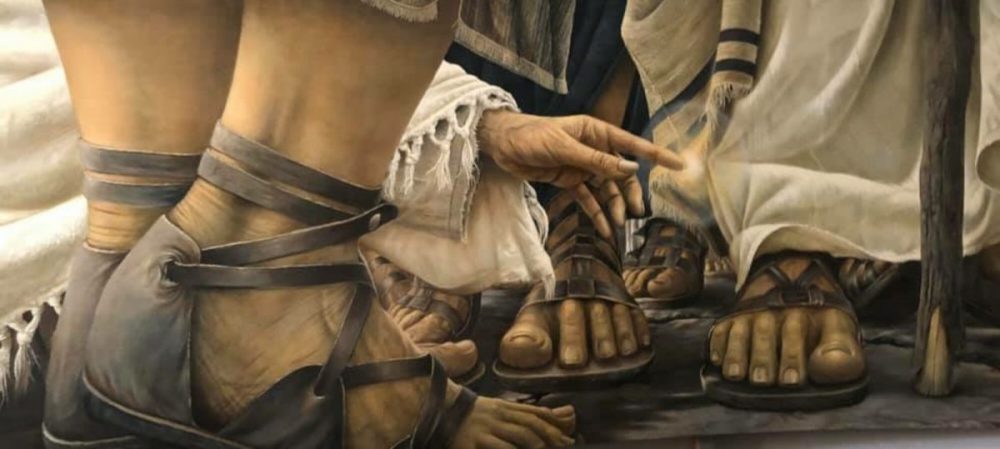
Our church is reading through the Bible together, and as we were reading through the book of Joshua, I noticed something I hadn’t seen before. Joshua 4 and 5 relate the story of Israel crossing the Jordan and camping at Gilgal. Once they made camp three things happened. God instructed Joshua to circumcise all the males who had not been circumcised since they left Egypt (Joshua 5:2-9), they celebrated Passover for the first time since leaving Egypt (Joshua 5:10-12), and Joshua had the encounter with the man with the sword (Joshua 5:13-15).
I had read this passage many times before, but I noticed something this time. When the first generation of Israelites left Mt. Sinai and were about to enter Canaan, the Promised Land, God was leading them from the south from Kadesh Barnea (Num. 13:26) through the Desert of Zin (Num. 13:21) and entering on the west side of the Salt Sea. Now, after forty years and with a new generation, why was God leading them in from the east side where they had to cross the Jordan River?
The reason goes back to the experiences of the first generation. The first generation went through the Red Sea which was symbolic of their dying to their old life of bondage and resurrecting to a new life from God. It was their baptism. They had all been circumcised and entered a covenant relationship with God, and they had demonstrated their faith in God by coming under the blood of the Passover lamb when the death angel passed through the land (Ex. 12:1-13). This generation, however, failed to trust God to enter the Promised Land, and God, therefore, punished them by having them wander in the wilderness for forty years until this entire generation died (Num. 14:20-35).
The second generation, though, who were born during their forty years in the desert had not experienced any of these things mentioned above. Therefore, they could not receive the promise of God through their father’s experience, but they had to have their own encounter with God. They had to cross the Jordan River so they could have their own baptism of dying to the old life and being raised to a new life in God. They also had to be circumcised so they could enter their own personal covenant with God. And, celebrating the Passover reminded them of what God did to deliver them from their bondage in Egypt, but it also connected them by faith to the saving blood of the Passover lamb.
What was necessary for this generation of Israelites is true for us today. Each individual and each generation must have their own encounters with God. They cannot rely on the faith of their parents or grandparents to save them. Everyone must personally apply the blood of the Passover Lamb of God to their own heart to be saved (1 Peter 1:18-21), be baptized into a new life in Christ (Rom. 6:1-7), and put off the old nature by being circumcised in the heart (Col. 2:11). Only then can they experience the promised blessings of God’s salvation.
One other thing. Israel could not just camp at Gilgal and say, “We are in the promised land, so we’ll just stay here. This is enough”. No, Gilgal was only the beginning. God had much more for them, but they had to go further. They had to engage in many battles, drive out the inhabitants, and possess the land God had promised them with God’s help. The promise was theirs, but they had to work to receive it.
Likewise, today I have known many Christians who are content with just camping at Gilgal. They are saved (crossed the Jordan) and committed to the Lord (circumcised in the heart). But, for whatever reason, they have no desire to go any further in their walk with the Lord. We need to understand, though, that Gilgal (salvation) is not the end but only the beginning. God has much more for us than we can possibly imagine. There is a spiritual abundance that He has promised us (John 10:10), however, like Israel, we must fight for it.
Paul says in Phil. 2:12-13 to “work out your own salvation with fear and trembling”. He is not saying to work for our salvation, but to work out our salvation—to discipline ourselves to grow deeper in our walk with God so we can experience all that He has for us. We must fight the battles against laziness, complacency, distractions, and even attacks from our spiritual enemy that hinder us and entice us to remain in Gilgal. We need a passionate heart that cries out for more of God’s Presence as Moses cried, “Lord, show me your glory” (Ex. 33:18). But we can’t do any of this in our own ability. Paul goes on to say in verse 13 that it is God who works in us to have the desire and the ability to do His will. He has more for us, and He wants to help us possess it. One final question for you to consider. Where are you? Are you passionately seeking God and disciplining yourself to possess all He has for you? Or are you content to remain in Gilgal? Or maybe you haven’t even crossed the Jordan River and entered a salvation experience with the Lord. Regardless of where you are, just keep in mind that God has more for you. It is yours if you want it. All you have to do is ask Him to give you the desire and the ability to receive it.
